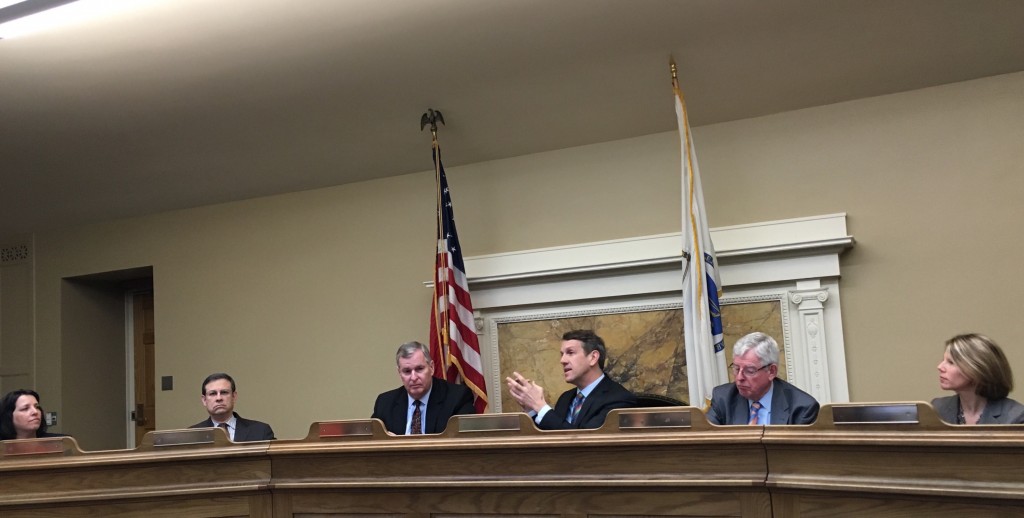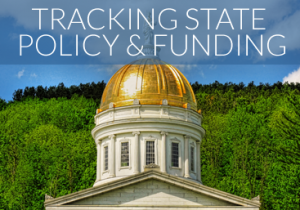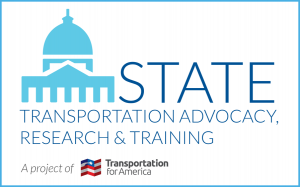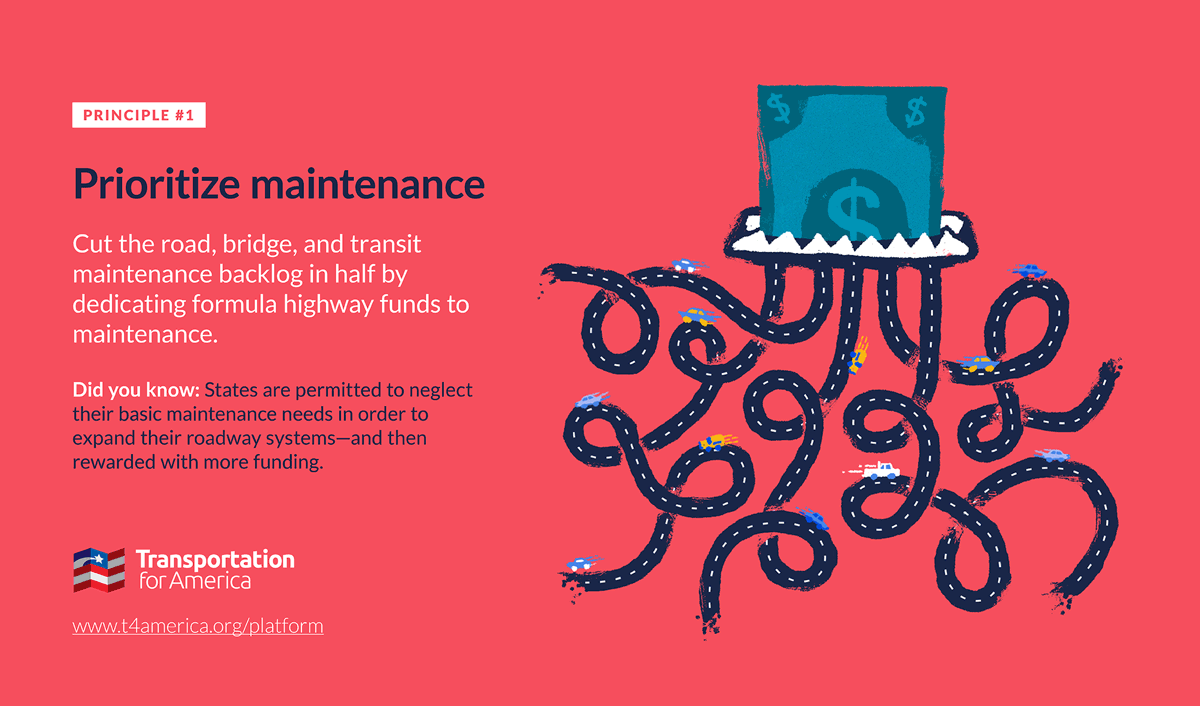Massachusetts event highlights the growing trend of states moving to enable more local transportation funding
“Let the voters decide.” It’s a mantra we hear all the time in politics, but not quite as much in transportation. Yet that’s starting to change, as nearly a dozen states have taken steps to empower local communities with new or enhanced taxing authority for transportation over the last few years, putting the question directly in the hands of voters.
Update: (5:23 p.m.) WAMC radio story about the briefing is at the bottom of this post.
Like in Utah, where legislature moved in 2015 to increase the state’s gas tax, tie it to inflation, and then provide individual counties with the ability to go to the ballot to increase sales taxes to raise yet more dollars to invest in their local transportation priorities. Voters approved the 0.25% sales tax increase in ten of the 17 counties where it was on the ballot last November. And in Virginia, state legislators in 2014 created a new regional funding mechanism and boosted sales taxes in the state’s two biggest metro areas (Northern Virginia and Hampton Roads) explicitly and only for transportation projects.
This growing movement of states taking action to empower local communities and put questions in the hands of the voters was the hot topic at a legislative briefing in the Massachusetts state capitol this morning, sponsored by a host of organizations including Transportation for Massachusetts and the Metropolitan Area Planning Council.

From left, Salem Mayor Kim Driscoll, MAPC executive director Marc Draisen, Former Indianapolis Mayor Greg Ballard, T4A Director James Corless (speaking), Pioneer Valley Planning Commission executive director Tim Brennan and Kristina Egan from Transportation for Massachusetts at this morning’s breakfast in the MA state capitol.
The briefing was in support of S1474 and H2698, bills in the Massachusetts legislature known as “enabling legislation” that would allow cities, towns or groups of cities new authority to raise one of four different sources of local taxes explicitly for local transportation projects.
 Tracking state policy & funding
Tracking state policy & funding
We are closely tracking this piece of state legislation and scores of others as part of our new resource on state transportation policy & funding. Visit our refreshed state policy bill tracker to see current information about the states attempting to raise new state or local funding in 2016, states attempting to reform how those dollars are spent, and states taking unfortunate steps in the wrong direction on policy.
 Tracking state policy & funding
Tracking state policy & funding
We are closely tracking this piece of state legislation and scores of others as part of our new resource on state transportation policy & funding. Visit our refreshed state policy bill tracker to see current information about the states attempting to raise new state or local funding in 2016, states attempting to reform how those dollars are spent, and states taking unfortunate steps in the wrong direction on policy.
T4America Director James Corless kicked off the discussion speaking to his own experience with ballot measures in California. “There is no better way of rebuilding the transportation brand with voters than asking them to tax themselves for projects and then delivering those projects and making good on that promise,” he explained.
In Indiana, the legislature acted in 2014 to change state law and allow metro Indianapolis counties to have a long-awaited vote on raising income taxes to fund an ambitious new public transportation network built around bus rapid transit.
Former Indy Mayor Greg Ballard, who told the Indy Star that he’d “been to the Statehouse more on [Indy’s enabling legislation] than any other issue,” was shared a local perspective this morning on how important it is for local cities to have more of a hand in deciding their own future and staying competitive.
“This is all about attracting talent…the local option transportation tax is a critical tool for mayors because, let’s face it, mayors know best what their most pressing transportation problems are,” Mayor Ballard said.
“When I became mayor we had one transit line on a map. We had no bigger, regional vision. What our local option tax has done is allow us to think big. So we now want to take seven new transit lines to the voters, and the local option tax made it possible to embrace such an ambitious vision. People used to move for a job now they move for a place – that’s why transportation and quality life is critical to make your economy competitive.”
The leaders of Massachusetts’ cities and towns are eager to put the question to voters. Marc Draisen, executive director of the Metropolitan Area Planning Council in the Boston metro area, said, “This bill sets a high bar — you have to let local voters decide on their own future…if they don’t like it, they will reject it.”
And the Mayor of Salem, Kim Driscoll, said that as things stand now without the legislation, it’s an uphill battle for cities like hers to invest in what they most need to stay competitive.
“The ability to connect people to places is critical. But for a place like Salem we simply don’t have the tools to invest in the projects that can make that happen,” she said. “This bill would unlock great ideas in the communities that really want it”
T4America director James Corless reminded everyone that the success of local cities and towns are intrinsic to the state’s economic prosperity.
“The best ideas are coming from cities and towns; empowering communities and promoting innovation is essential to a strong future.”
Updated 5:23 p.m. — WAMC Northeast Public Radio did a story about this morning’s briefing. Read or listen to the story here. An excerpt:
State Senator Ben Downing is sponsoring a bill to enable a community or group of municipalities to enact a tax to finance local transportation projects.
“This is a way to control much more directly how we raise and how we spend money for transportation,” Downing said. “It’s also a way to guarantee that the dollars that are raised will stay in the community where they are raised.”
…Transportation for America Director James Corless says since 2013 10 states have passed similar legislation. “In part they realize Congress is not going to come to their rescue anymore and increasingly even state capitals are broke,” said Corless.
—
This story is part of the work of T4America’s START Network — State Transportation Advocacy, Research & Training — for state elected leaders and advocates working on similar state issues.





















1 Comment